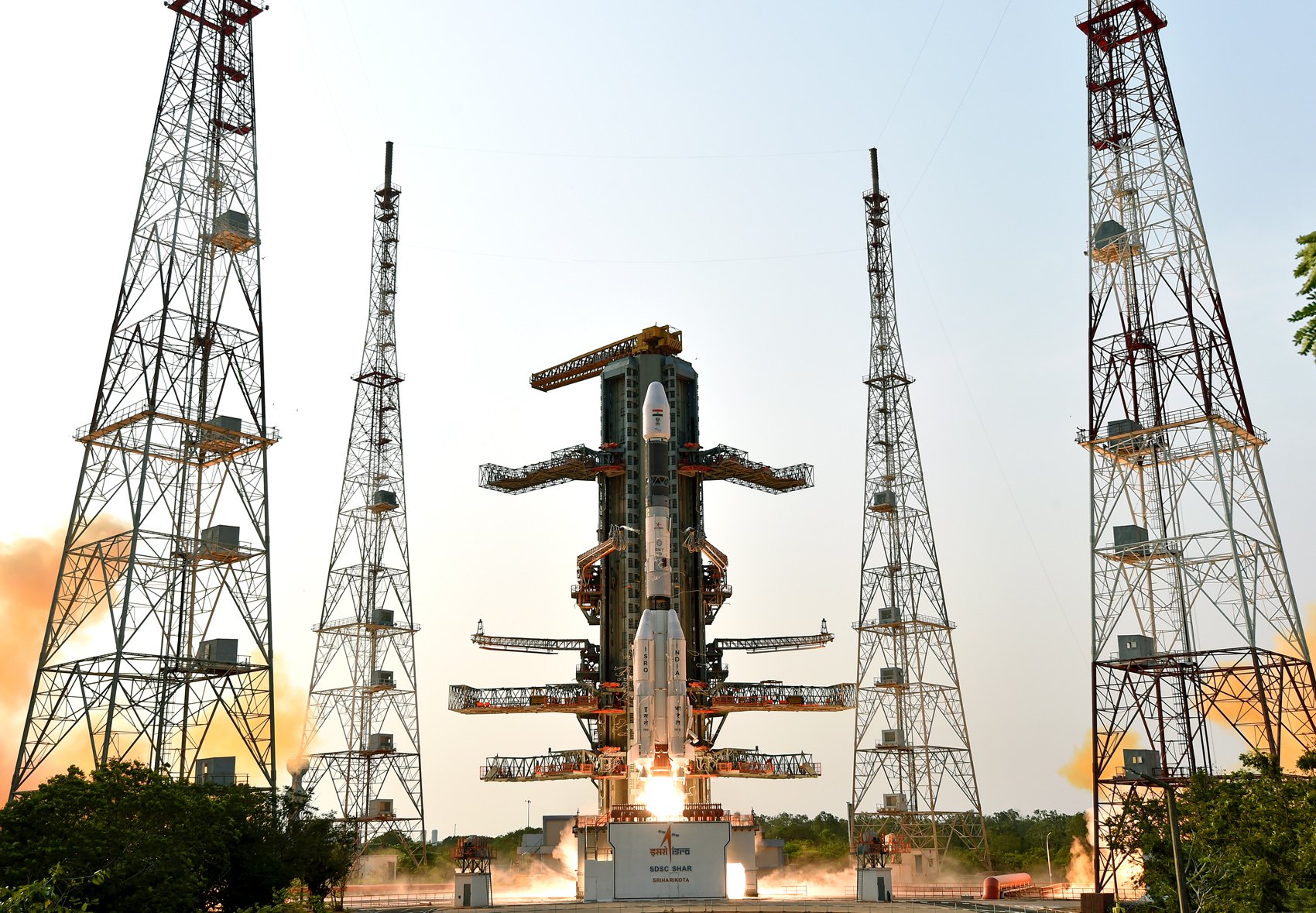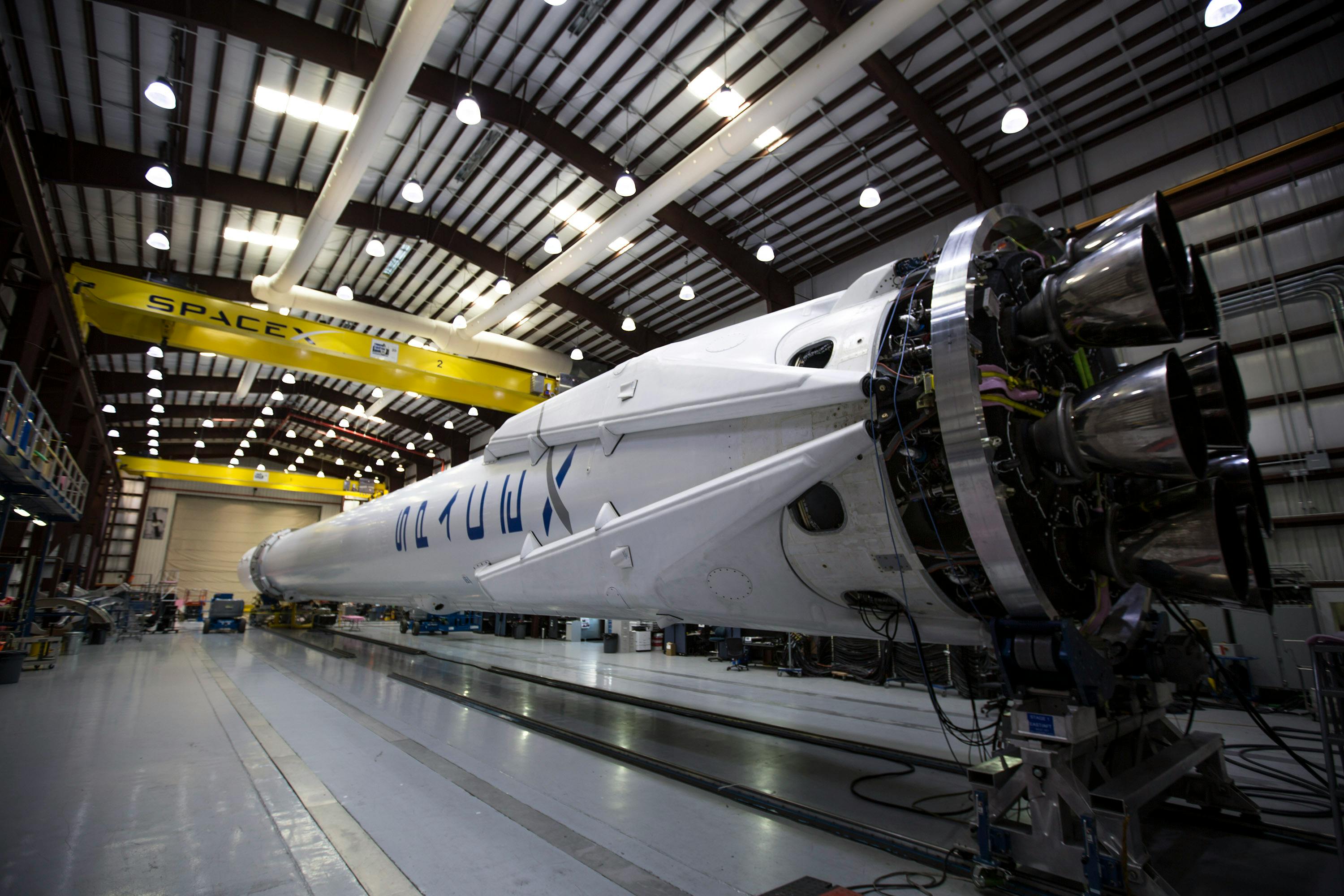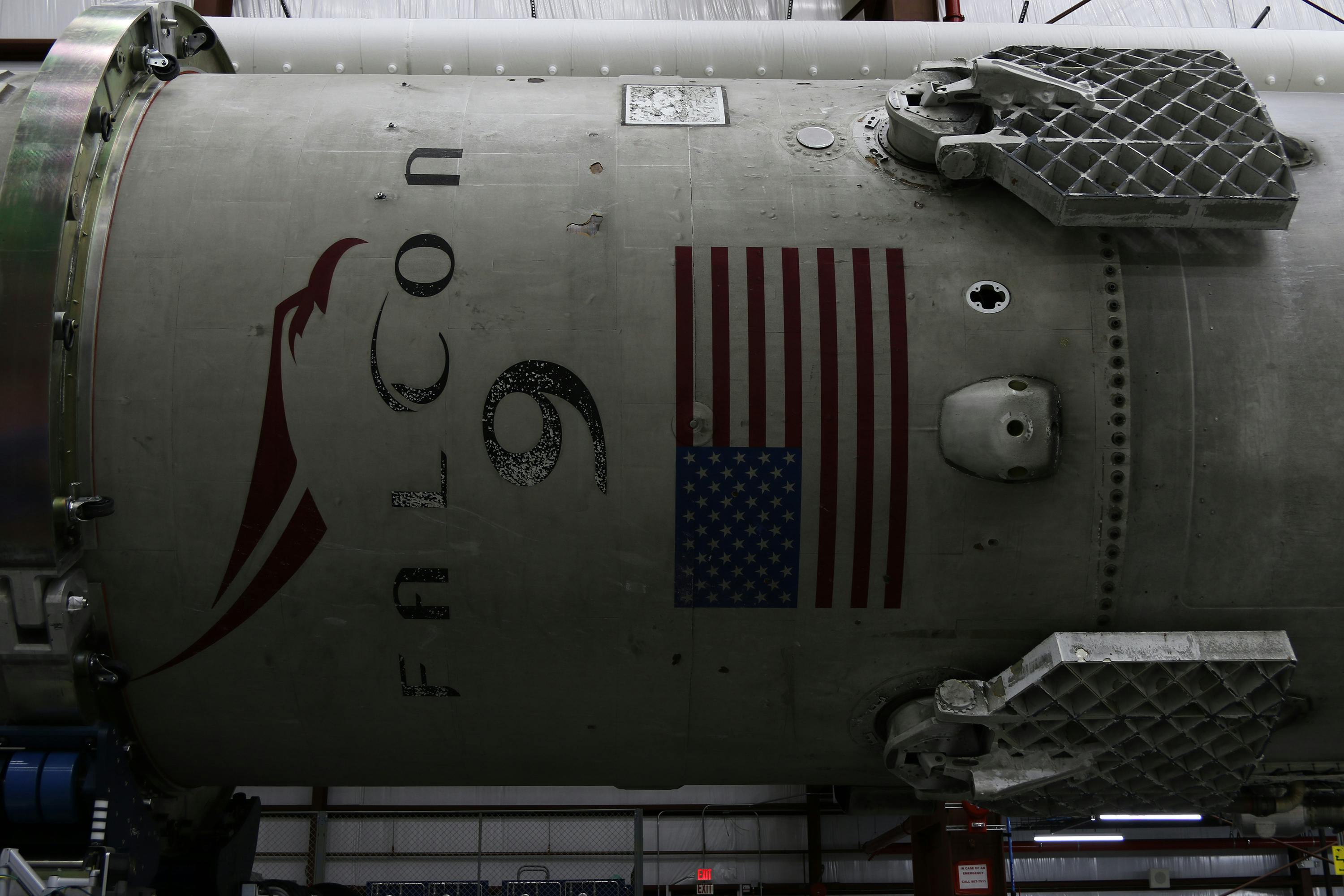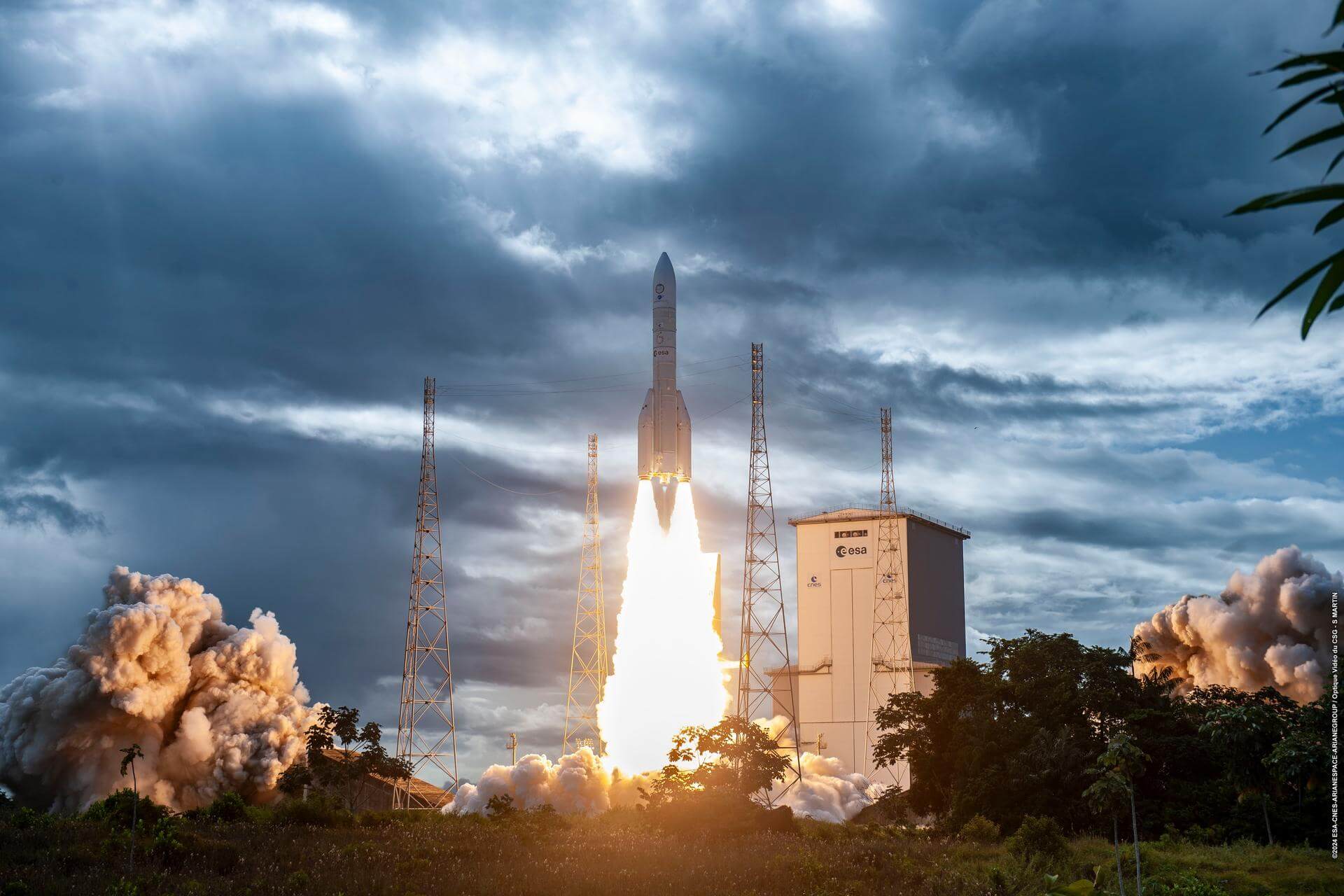· space brief · 4 min read
Space Brief 3 Feb 2025
Today's brief covers SpaceX's continued Starlink expansions, Japan's successful Michibiki satellite launch, and challenges faced by India's navigation satellite. Stay updated on crucial satellite events and launches.
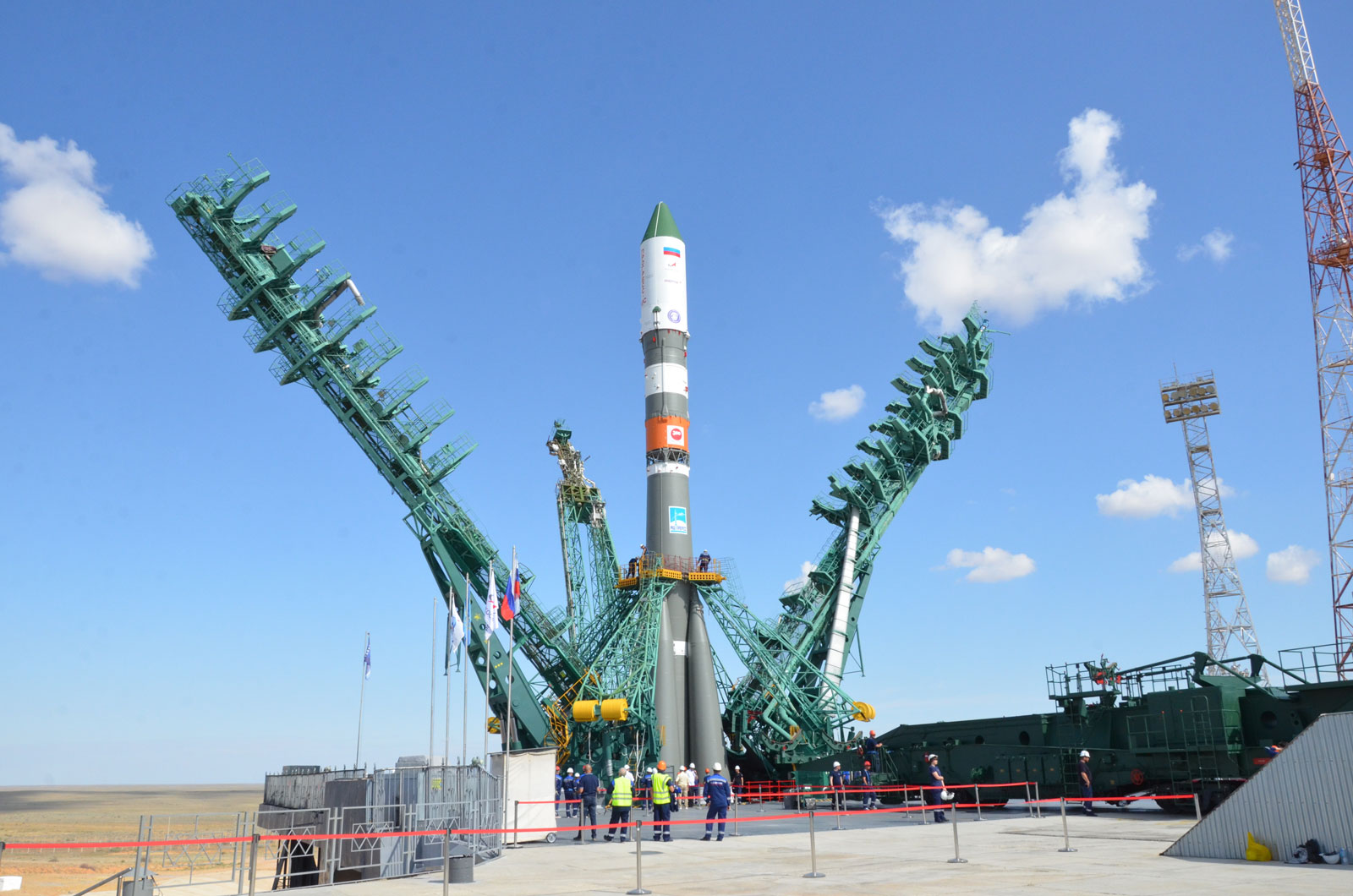
📄Top Stories
SpaceX leads the day with another successful launch of 22 Starlink satellites from California, continuing their mission to expand global internet coverage. Following swiftly, Japan launched its Michibiki 6 navigation satellite, enhancing its GPS capabilities. However, India faces setbacks with a navigation satellite stuck in orbit, highlighting the complexities of satellite missions.
📰Detailed Coverage
SpaceX Expands Starlink Network with California Launch
SpaceX successfully launched 22 Starlink satellites into orbit on February 1st from California’s Vandenberg Space Force Base. This launch is part of SpaceX’s ongoing efforts to deliver global internet accessibility through its Starlink constellation. As part of their rapid-fire launch schedule, this mission continues to demonstrate SpaceX’s reliability and ambition in commercial spaceflight.
The mission utilized the Falcon 9 rocket, known for its reusability and efficiency, which supports SpaceX’s cost-effective launch strategy. With thousands of satellites already in orbit, Starlink is set to change the landscape of internet connectivity, promising improved access in remote and underserved regions.
Read the full story: Space.com
January Success: Japan Launches Michibiki 6
Japan’s H3 rocket has successfully launched the Michibiki 6 satellite, part of their regional navigation system, from the Tanegashima Space Center. This success strengthens Japan’s autonomous GPS capabilities and showcases the reliability of the Mitsubishi Heavy Industries-built H3 launch vehicle.
The Michibiki satellite system is critical for providing high-precision positioning services in Japan and neighboring areas. By enhancing these capabilities, Japan secures more robust navigation and timing services, essential for both civilian and military applications.
Read the full story: SpaceNews
Indian Navigation Satellite Faces Potential Setback
An Indian navigation satellite, recently launched, is facing trouble after its onboard propulsion system encountered failure, leaving it stranded in a transfer orbit. This incident highlights the challenges and risks involved in satellite deployments, with potential reentry threats being assessed.
This development emphasizes the importance of reliable propulsion systems in satellite missions, crucial for reaching and maintaining the intended orbit. The Indian space agency is currently evaluating options to rectify or mitigate the situation.
Read the full story: SpaceNews
Upcoming Starlink Mission from Florida
SpaceX prepares to launch another 21 Starlink satellites from Florida’s Cape Canaveral Space Force Station on February 4th. This mission, marking the 230th orbital launch for SpaceX, continues their extensive deployment strategy for global broadband coverage.
These launches are critical milestones in SpaceX’s plan to blanket the Earth with internet coverage, highlighting the robust capabilities of their Falcon 9 rocket. Enthusiasts can track the progress of these satellites via our web app, providing real-time data as they join the constellations.
Read the full story: Spaceflight Now
🛰️Satellite Spotlight
- Satellite Name: COSMOS 2091
- NORAD ID: 20736
- Launch Date: 1990-08-08
- Mission: Military Communication
- Orbit: Inclination: 82.5775°, Period: 114.1 min, Eccentricity: 0.0003657
- Operator: UNKS
- Fun Fact: COSMOS 2091 is part of Russia’s Strela-3 system, designed to provide secure, encrypted military communications across vast regions.
Current TLE Data:
1 20736U 90070B 25033.70717556 .00000042 00000+0 17525-3 0 9993
2 20736 82.5775 287.0402 0003657 146.9033 227.6092 12.62542867589287Track this satellite in real-time on our web app: Track COSMOS 2091
🚀 Upcoming Space Launches
February 3
- SpaceX Falcon 9:
- WorldView Legion 5 & 6 from Kennedy Space Center (23:32 UTC) WorldView Legion is a constellation of Earth observation satellites providing 30 cm-class resolution.
February 4
- SpaceX Falcon 9:
- Starlink Group 12-3 from Cape Canaveral SFS (08:37 UTC) A batch of 21 satellites for the Starlink mega-constellation, SpaceX’s project for a space-based Internet communication system.
- Blue Origin New Shepard:
- NS-29 from West Texas Suborbital Launch Site, Corn Ranch (15:30 UTC) NS-29 will simulate the Moon’s gravity to test lunar-related technologies. This includes 30 payloads focusing on areas such as in-situ resource utilization, dust mitigation, and small spacecraft technologies.
- Rocket Lab Electron:
- IoT 4 You and Me (Kinéis 16-20) from Rocket Lab Launch Complex 1, Mahia Peninsula, New Zealand (20:43 UTC) Fourth batch of five satellites for the French Kinéis IoT constellation designed to operate with 25 nanosatellites.
February 5
- Russian Space Forces Soyuz 2.1v/Volga:
- Kosmos (Unknown Payload) from Plesetsk Cosmodrome, Russian Federation (03:00 UTC) Unidentified classified satellite(s) for the Russian military.
February 7
- SpaceX Falcon 9:
- Starlink Group 12-9 from Cape Canaveral SFS (18:50 UTC) A batch of satellites for the Starlink mega-constellation, SpaceX’s project for a space-based Internet communication system.
February 11
- China Aerospace Science and Technology Corporation Long March 8A:
- Demo Flight from Wenchang Space Launch Site, People’s Republic of China (09:53 UTC) Demonstration flight of the Long March 8A rocket with upgraded engines and a new upper stage.
February 26
- Arianespace Ariane 62:
- CSO-3 from Guiana Space Centre, French Guiana (16:24 UTC) The CSO-3 satellite is part of a new high-resolution optical imaging series for the French military.
February 27
- SpaceX Falcon 9:
- Nova-C IM-2 & Lunar Trailblazer from Kennedy Space Center (00:00 UTC) Second mission of the Nova-C lunar lander carrying NASA’s PRIME-1 payload, including a drill and mass spectrometer for in-situ resource utilization on the Moon.
February 28
- Russian Federal Space Agency (ROSCOSMOS) Soyuz 2.1a:
- Progress MS-30 (91P) from Baikonur Cosmodrome, Republic of Kazakhstan (00:00 UTC) Progress resupply mission to the International Space Station.
Note: Launch dates and times are subject to change due to technical or weather considerations.

Maurice Stellarski


